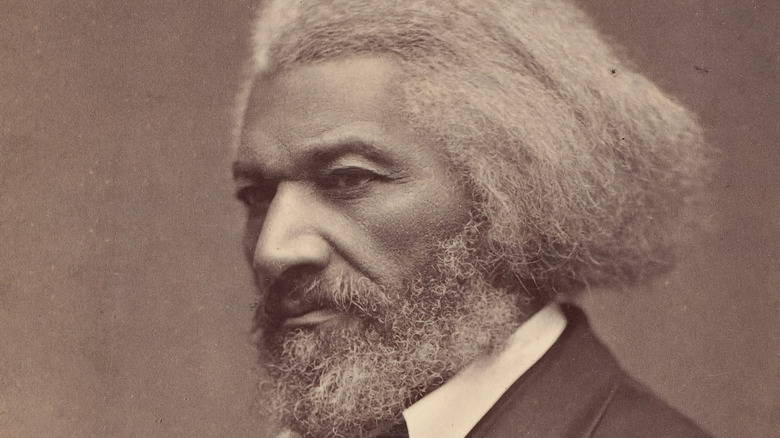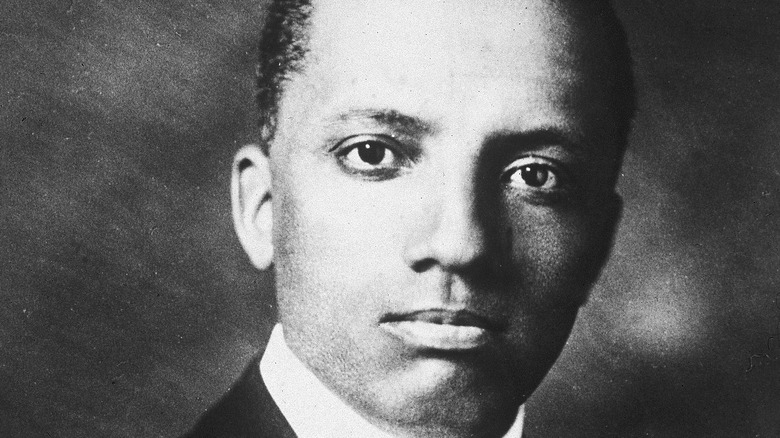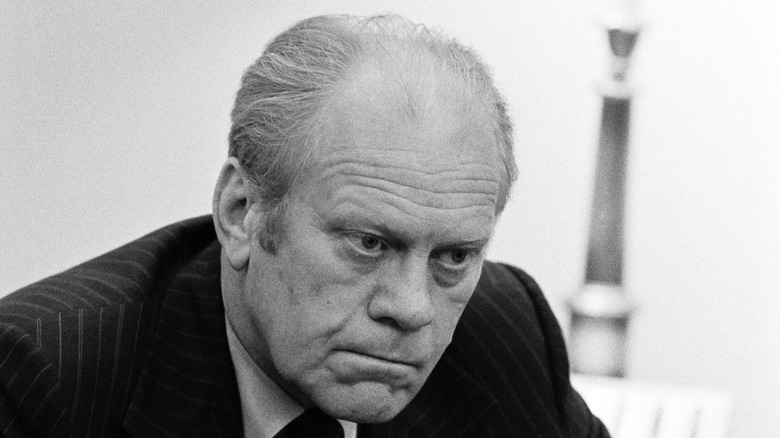Why Black History Month Is Celebrated In February
Since 1976, Black History Month is an annual celebration of achievements by African Americans and a time for recognizing their crucial role in U.S. history. The month-long observance that occurs every February puts those milestones and sacrifices into the focus of the media and classrooms across the country. It not only acknowledges a tragic history of racism born out of slavery but also the contributions of activists and civil rights pioneers such as Sojourner Truth, Marcus Garvey, Frederick Douglass (pictured above), Martin Luther King Jr., Malcolm X, and Rosa Parks.
However, as President Barack Obama said in a 2016 speech [via the White House archives], it's important to observe the month in broader terms. "Black History Month shouldn't be treated as though it is somehow separate from our collective American history, or somehow just boiled down to a compilation of greatest hits from the March on Washington, or from some of our sports heroes," he said, adding, "It's about the lived, shared experience of all African Americans, high and low, famous and obscure, and how those experiences have shaped and challenged and ultimately strengthened America. It's about taking an unvarnished look at the past so we can create a better future. It's a reminder of where we as a country have been so that we know where we need to go."
Black History Month remains an important part of American culture. The reason it is held in February has to do with the man who first put forth the notion that African Americans' achievements warranted recognition and a place in the history books.
It started with a man named Carter G. Woodson
The origins of Black History Month grew out of "Negro History Week," the brainchild of Harvard-trained historian Carter G. Woodson and a number of other prominent Black historians, ministers, and activists. Woodson and his colleagues had grown tired of school books minimizing or ignoring the contributions of Black individuals in American history, noting that continuing to do so could be detrimental to their existence. "If a race has no history, it has no worthwhile tradition, it becomes a negligible factor in the thought of the world, and it stands in danger of being exterminated," Woodson once said, per the Courier-Journal.
With the backing of his Association for the Study of Negro Life and History (which later became the Association for the Study of African American Life and History), in 1926 Woodson designated the second week of February to bring attention to these important stories on American campuses. According to Mental Floss, Woodson selected the second week of February because it covered the birthdays of two important figures in Black History: Frederick Douglass on the 14th and Abraham Lincoln on the 12th. Although it did take time for support to grow, in the decades that followed college campuses around the country adopted the week-long celebration, and mayors of cities began issuing yearly proclamations of "Negro History Week." By the 1960s, the week had evolved into Black History Month at many colleges, according to the website, History.
Gerald Ford was the first president to acknowledge Black History Month
In 1976, on both the 50th anniversary of the first Negro History Week and America's bicentennial year, Gerald Ford became the first U.S. president to officially designate February as Black History Month. On the occasion, Ford called upon Americans to "seize the opportunity to honor the too-often neglected accomplishments of Black Americans in every area of endeavor throughout our history," according to Time.
Since then, each year American presidents have endorsed a specific theme put forth by the Association for the Study of African American Life and History. For 2022, the theme of "Black Health and Wellness" explores [via the ASALH website] "the legacy of not only Black scholars and medical practitioners in Western medicine, but also other ways of knowing (e.g., birth workers, doulas, midwives, naturopaths, herbalists, etc.) throughout the African Diaspora. The 2022 theme considers activities, rituals and initiatives that Black communities have done to be well."


